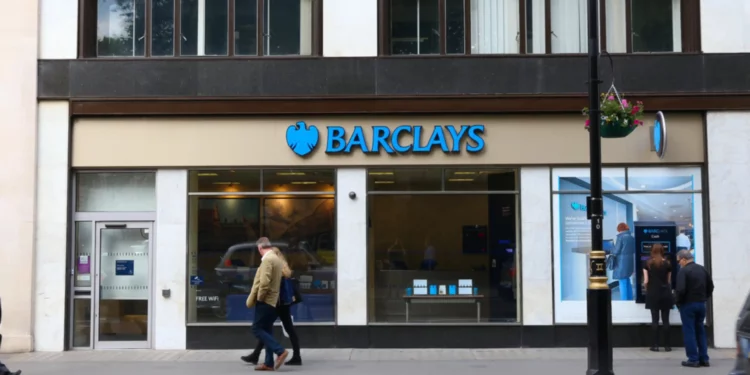Barclays’ action is similar to JPMorgan’s, which also stated in June that it would do away with the bonus limits.
As the first bank in the UK to do so, Barclays has officially lifted the EU-imposed cap on bankers’ bonuses, allowing them to get rewards that are ten times greater than their wages.
Four months after shareholders at Barclays’ AGM approved the plan to abolish the restriction that previously capped incentives to two times bankers’ pay, the revelation was delivered to workers on Thursday through a memo.
Following the removal of the cap by British financial authorities last year, all of the country’s largest lenders, including Barclays, Lloyds, and HSBC, are in the process of raising the cap, which was one of the major measures imposed by the EU in the wake of the 2007-2008 financial crisis.
They have been deliberating on the maximum ratios to offer staff, but they had previously submitted the change to a vote among shareholders at their AGMs in April and May. Following US bank JPMorgan, Barclays now permits salaries up to ten times.
Barclays, meanwhile, advised bankers not to become too optimistic. According to the memo, “total compensation will continue to be performance-based and market-informed at an individual level.”
Barclays’ action is similar to JPMorgan’s, which also stated in June that it would do away with the bonus limits. However, JPMorgan restricted bonuses for major risk-takers to ten times their income while keeping fixed compensation.
The UK government’s decision to remove a restriction on employee bonuses that had required EU-based banks to give bonuses equal to no more than twice a banker’s salary since 2014 is an illustration of how it deviated from the regulations of the European Union following Brexit.
However, banks are using different strategies. Large-scale restructures of UK pay are being impeded by so-called fixed allowances for top bankers, which were instituted in the wake of the bonus cap. This is because staff have been resistant to change.
These transfers added fixed amounts to salaries, therefore getting around the bonus cap. While fixed allowances meant guaranteed compensation, which senior bankers had grown dependent on over the previous ten years, they also prevented them from earning large bonuses during prosperous years.
Approximately half of the 1,600 employees at Barclays’ investment bank are MRTs, and they have higher average payments than other business lines.
For these people, the fixed salary was higher last year than bonuses. The average salary for the elite investment bankers was £717,500, including bonuses of £642,100. Additionally, the UK lender gave dealmakers more “goose eggs” – zero bonuses – last year.
Additionally, MRTs are vulnerable to onerous bonus deferral programs that include six-year clawback requirements.
After the modifications were put into place, JPMorgan bankers likewise did not anticipate significant changes to senior banker compensation this year.
Initially, the cap was intended to eradicate a bonus culture that was held responsible for causing the financial crisis by prioritizing short-term gains over longer-term stability. The idea was to reduce the incentive for risky behaviour by not basing as much of an individual’s salary on performance.
Regulators and lawmakers in the UK, however, were largely against the regulations, claiming that the tightening would make it more difficult to draw in talented bankers, who would instead go to competing centers like New York, Singapore, or Zurich. In 2014, the then-chancellor George Osborne attempted to have the policy overturned at the European Court of Justice.
During the failed mini-budget of the Liz Truss government in September 2022, Osborne’s replacement, Kwasi Kwarteng, first stated plans to eliminate the banker bonus cap. However, the majority of major UK bankers claimed that they were not consulted on the ideas. Later that fall, the Bank of England and other UK regulators, together with the then-chancellor Jeremy Hunt, gave them their approval.
Labour has decided not to go back on the ruling.

















